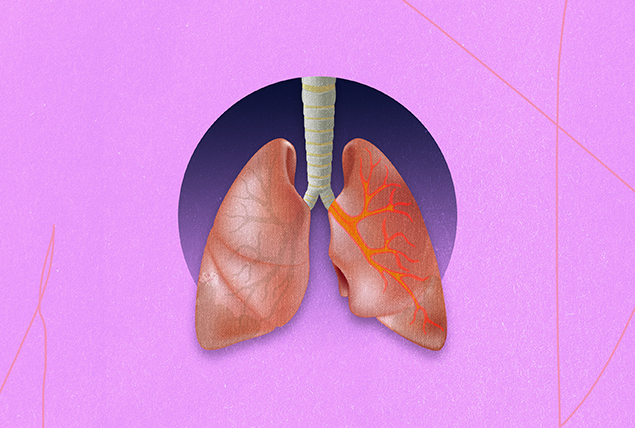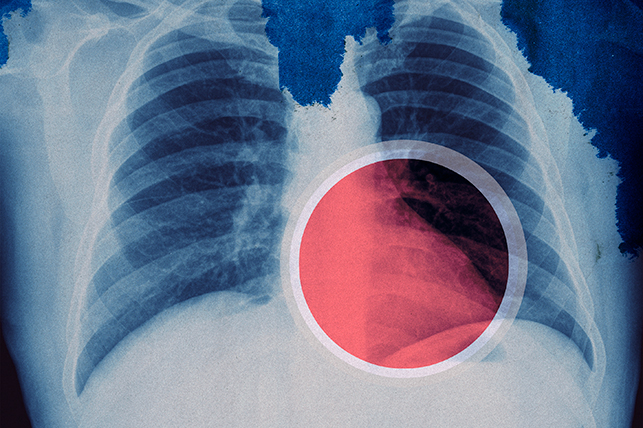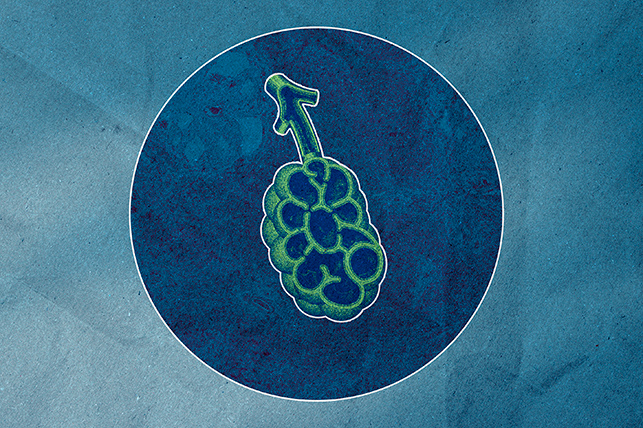Cystic Fibrosis Impacts Your Overall and Sexual Health

Cystic fibrosis (CF) is a chronic health condition associated with excess production of mucus. The thick mucus is difficult for the body to clear from the lungs, pancreas and other organs. Over time, medical professionals have identified the inheritance of a mutation of the cystic fibrosis transmembrane conductance regulator (CFTR) protein from both parents as the cause.
In recent years, targeted treatments have been developed to manage CF symptoms, but there is no cure for the disease. Patients must contend with a large number of medical consequences.
Many parts of the body produce mucus, and cystic fibrosis wreaks havoc in various systems. Most notably, respiratory function is compromised, typically followed by digestive and reproductive regions.
It is not uncommon for people with CF to experience diminished lung capacity, insufficient digestion and issues related to fertility. But how do these symptoms impact a person's general well-being?
How does cystic fibrosis affect your overall health?
The effects of cystic fibrosis on general health are widespread. All the body's secretions are affected, including those from the lungs, intestines and sexual reproductive organs, according to Jyoti Matta, M.D., a pulmonologist affiliated with RWJBarnabas Health Medical Group in Jersey City, New Jersey.
"If a person with CF has frequent lung infections and digestive problems, it can deteriorate their quality of life," she said.
Having cystic fibrosis inherently makes people more susceptible to other illnesses. Immune system functioning is impaired and thickened mucus acts as a glue trap within the organs, so patients with CF need to be extremely careful with germ exposure to prevent exacerbated strain and risk on their fragile body systems.
Cystic fibrosis carries a wide spectrum of symptom severity, so every person diagnosed with it endures their own personal struggles with the disease.
How does CF affect pregnancy and hormones?
Sexual hormone levels in females with CF are generally normal, though this varies depending on disease severity. Some women may experience worsening symptoms around their menstrual cycle, according to Traci M. Kazmerski, M.D., an assistant professor of pediatrics at the University of Pittsburgh. As a result, special considerations should be made regarding contraception choices, she said.
Puberty tends to have a later onset for both males and females with CF. People with the disease must be careful regarding contraception, as the intended effects of birth control may be diminished when taken in conjunction with a variety of antibiotics. Shots also may be linked with osteoporosis, and CF patients already face an increased risk of this bone disease.
Thick mucosal consistency within the vagina often causes conception barriers because sperm is unable to reach the fallopian tubes for fertilization, though females are still able to have biological children.
"In the era of highly effective modulator therapies, increasing numbers are becoming pregnant," Kazmerski said.
However, pregnant women with CF are at an elevated risk of complications stemming from malnutrition, such as premature births, fetal abnormalities and gestational diabetes, as well as the potential of passing on the mutated CFTR gene.
CF can have an effect on mental health
Stress related to ongoing symptoms and mental preoccupation with the potential long-term complications of cystic fibrosis can be detrimental to daily living and affect performance at work and school and normal social functioning, which may lead to strained interpersonal interactions and isolation.
Many children and adolescents are likely to have poor psychological health, suffer from low self-esteem and exhibit disruptive behaviors. A desire to fit in and deny symptoms can cause their adherence to their medication schedule to suffer, and those children often have difficulties with psychosocial adjustment surrounding their disease.
Ignorance and stigma from others affect CF patients of all ages, though it is often worse for impressionable youngsters.
As time goes by and cystic fibrosis gets worse, so do psychiatric issues. People with CF have higher rates of depression and anxiety compared to the general population, as is the case with other chronic health conditions, Kazmerski said.
Frequent hospitalizations and time-consuming treatment regimens—some last several hours per day—are exhausting, and activity restrictions leave people with CF excluded from peer groups. The subsequent patient burnout is correlated with lowered treatment compliance, negative physician-patient rapport and an overall worse prognosis.
CF can play a role in sexual health
Along with fertility issues, Kazmerski identified urinary incontinence—often caused by coughing—and yeast infections as frequent sexual health complaints from women with cystic fibrosis. Certain antibiotics interfere with vaginal bacterial flora and pH levels, leading to fungal vaginitis.
Viscous mucus traps germs, increases women's risk of contracting sexually transmitted infections (STIs) and causes other complications, such as painful intercourse or urination, itchiness and irritation.
It's not only women who experience sexual health problems. Men have their own set of concerns.
"Nearly all males with CF are infertile due to congenital bilateral absence of the vas deferens. Males with CF can also face issues related to low testosterone," Kazmerski explained. "Thus, to have biological children, males with CF must use assisted reproductive technologies."
Despite this shortcoming, spermatogenesis is unimpeded, and men are still able to perform standard sexual activities.
Another key concern lies with physical symptoms during sex, especially when it's strenuous. Respiratory issues frequently cause coughing and shortness of breath. Certain positions, such as those where the person is lying down, promote the passage of mucus into the lungs. One good precaution is to use a pillow as a prop under the person's back.
The chances of respiratory distress are lessened by avoiding putting pressure on the chest and by being a less vigorous participant. Chronic illnesses are tiresome, and fatigue often reduces libido.
Physiological barriers aside, psychology plays an important role in the sex life of someone with cystic fibrosis.
Being underweight and the presence of scars—caused by surgery, transplants, peripherally inserted central catheters (PICCs) and ports—can make a person self-conscious and unmotivated toward sexual relations. Having cumbersome or unsightly medical equipment, such as feeding tubes, chest ports and PICCs, can worsen self-consciousness, making the person feel unattractive or even anxious out of fear of dislodging or aggravating the devices.
Other CF complications and related conditions
Cystic fibrosis poses the threat of additional consequences. Within the respiratory system, patients with the disease are afflicted with myriad conditions, including chronic lung infections, such as pneumonia, and coughing up blood or mucus.
In severe cases, people can have collapsed lungs, reduced lung capacity and even respiratory failure. The upper respiratory tract is often impacted by nasal polyps and sinusitis, making breathing even more arduous.
Some patients may even require lung transplants when their native lungs lose normal pulmonary function over time.
Along the gastrointestinal tract, people with CF experience liver disease, diabetes, pancreatitis, rectal prolapse, greasy stools and other ailments. Mucus buildup prevents the body from getting the nutrients it needs, and because their bodies have to fight so hard to breathe and stave off bacteria, CF patients burn substantially more calories than the average person. This leads to an inability to sustain a healthy weight, which is important for thwarting infections and promoting growth.
Other related conditions include arthritis, osteoporosis, cor pulmonale from elevated lung pressure, and varying levels of infertility for both men and women, though the latter is more prevalent in males.
These major impacts on important organ systems ultimately lead to increased mortality rates. Though most people with cystic fibrosis can now persevere well into adulthood with the help of better treatments, their life expectancy remains significantly lower than rates in the general population.


















